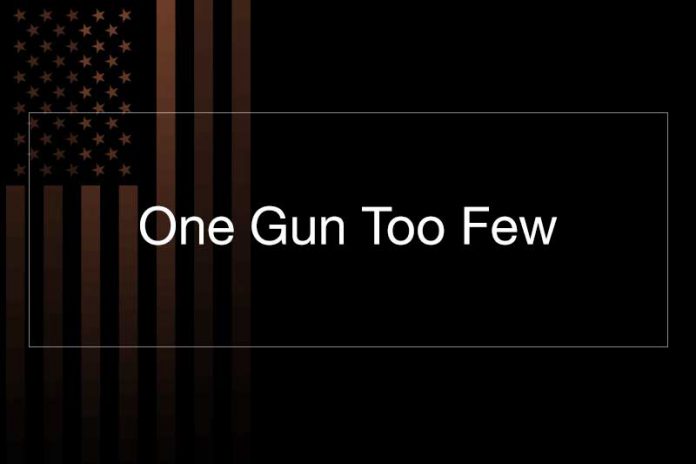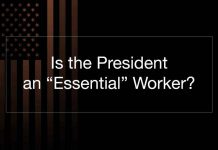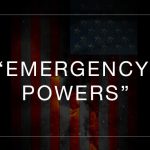Last Updated on October 6, 2021 by Constitutional Militia
What the Washington Times of Tuesday, 17 April, aptly headlined as the “Massacre at Virginia Tech” is a tragedy that should—that must—teach this country a number of serious lessons.
First, that all so-called “gun-free zones” are exceedingly dangerous places. For all “gun-free zones” amount to “self-defense prohibition zones” for honest citizens, and therefore “free-fire zones” for psychopaths, “terrorists,” and other homicidal criminals. If common sense did not, certainly the experiences documented by researchers such as John Lott confirm that the less “gun free” an area is (in terms of firearms in the immediate possession of honest citizens ready and willing to use them), the less violent crime occurs there.
Virginia Tech has long been a “gun-free zone” for the purposes of its students’ self-defense. In the name of preventing violence, the university has prohibited every student with a Virginia license to carry a concealed firearm from doing so on campus. Surely debatable is whether such a regulation is even legal— given that such a license is a Virginia statutory right of any individual who qualifies for it (and, I should argue, a constitutional right as well) that no mere administrative body has any authority to deny. Beyond dispute is that events have written in blood just how disastrously that idea worked on Monday, 16 April 2007: Apparently everyone among the student body obeyed the edict, except the killer. The regulation perhaps disarmed students who might otherwise have legally been carrying a firearm with which they could have stopped the killer in his tracks. And the police, who were armed and on the campus, proved ineffective, because they were not on the scene.
This points up the second lesson—that police, even when they happen to be close at hand, cannot possibly protect Americans against unexpected homicidal attacks by psychopaths or “terrorists” determined to carry out their plans even if it costs them their own lives.
The first fatal incident at Virginia Tech occurred at about 7:15 a.m. Campus police responded, and found a man and a woman shot in a dormitory (West Ambler Johnston Hall). Although the police “locked down” the dormitory, the first incident apparently did not raise any suspicions or concerns about the possibility of further shootings. And it caused no heightened level of general security to be invoked elsewhere on the campus, the only action taken by university officials being an e-mail vaguely informing students that a “shooting incident” had occurred (Washington Times, p. A12).
About two hours later, around 9:15 a.m. (according to USA Today, p. 6A) or 9:45 a.m. (according to the Washington Post, p. A1), the killer began methodically shooting people in another building some half-mile across the campus (Norris Hall). And the police could do—or at least did—nothing to stop him. (Eventually, he stopped himself, by committing suicide.)
To be sure, it is virtually impossible to “lock down” an entire university the size of Virginia Tech at a moment’s notice. And such a course of action would be especially difficult to justify as a response to what reasonably appears to be an isolated incident in only one building. But what else could the police have done, other than (as they did) to arrive only after the fact to succor the wounded and otherwise survey the carnage in Norris Hall?
The third lesson arising out of the events at Virginia Tech will be taught in the very near future: that, in reaction to the rather convincing proof of their own ineffectiveness against a sudden outburst of homicidal violence, university and police bureaucracies—and, inevitably, politicians and special-interest groups, too—will seek to impose ever-more-intrusive police-state controls on colleges and universities, if not all of society, in the name of “safety.”
As the Establishment media crank up their disinformation apparatus, Americans can expect to be bombarded with hysterical demands for:
- more campus police—but never enough to prevent the homicides that will inevitably occur just beyond their presence;
- surveillance cameras and other 1984ish gadgetry—effective perhaps to record the killings, but never to stop them;
- reliance on high-tech student ID cards—which a demented assassin or “terrorist” plant who is also a student will of course have; and the ever- flowing political snake oil of
- general “gun control” to disarm everyone— except the “terrorists,” psychopaths, and common murderers who will obey no “gun bans” in any event.
Unfortunately, but predictably, all too many Americans will not notice the illogic of these demands. The authorities at Virginia Tech failed to provide safety with the rather extensive powers they already had. Yet, according to “safety-at-any-cost” school of thought, society must now acquiesce in public officials’ and bureaucrats’ assertion of even more power, trusting them to use the added increment wisely—but never asking whether the reason they proved unsuccessful in the first place was not the insufficiency of the powers they had, but their refusal, neglect, or failure to employ those powers properly. For, in that case, the very last thing they should be given is any additional, potentially highly abusive power to misuse.
The fourth lesson from Virginia Tech is that one obvious (albeit only partial) alternative to a police- state solution for campus security would be to allow holders of Virginia permits to carry concealed firearms on campus. This would bring into play the only type of “gun control” that Americans should tolerate, and the only type of “gun control” that might have saved some lives in Norris Hall: an honest citizen’s sharp eye and steady hand in the defense of himself, his family, and his friends.
Perhaps some student who could legally have carried a concealed firearm and used it to stop the killing, but in compliance with the university’s regulation did not, will come forward to explain why there was one gun too few at Virginia Tech. Should that turn out to be the case, God help the administrators who adopted such a misguided policy. But even if it does not, the possibility should be precluded in the future, by rescinding such policies—at Virginia Tech and in every other institution of higher learning throughout Virginia and every other State.
The fifth lesson is that, although to a significant degree necessary, reliance on holders of permits to carry concealed firearms will probably not be sufficient to provide adequate security for college students, let alone for the general public throughout society, in an era in which homicidal (often coupled with suicidal) violence has increasingly become the tactic of choice to resolve complex personal as well as political problems. Inasmuch as a holder of a Virginia permit to carry a concealed firearm must be at least 21 years of age, whereas many college students range in age from only 18 to 20; and inasmuch as not everyone qualified by age will seek a permit; and inasmuch as even those who do obtain a permit may not carry their firearms regularly—the pool of students actually armed on campus will be far smaller than the population of the university as a whole.
Moreover, the university community cannot, in justice or reason, expect holders of concealed-carry permits to assume the primary responsibility for protecting their fellow students, faculty, and staff whenever and wherever the police do not. Especially because, outside of the privilege of self-defense, they have no particular legal authority to do so, and enjoy no clear-cut legal immunity from civil or criminal charges—perhaps specious, but nonetheless necessitous of litigation—if circumstances compel them to use deadly force against aggressors.
More is required. But what?
The sixth lesson from the Virginia Tech tragedy is that Virginians—indeed, Americans in every State—cannot expect the present gaggle of public officials and politicians to answer this question on their own initiatives and by their own lights. Again and again these people have proven themselves clueless, feckless, and reckless with regard to what constitutes true “homeland security” and how to achieve it.
According to the Washington Times, authorities at Virginia Tech decided not to cancel classes after the first homicidal event (in which two people were fatally shot), because they imagined that they were investigating only an isolated incident (page A1). Even if that story truly accounted for their behavior, though, it did not explain why they had never designed, let alone put into operation, a plan to protect against, thwart, or even respond in a timely manner to the type of rampage that took place some two hours later on the same campus.
Instead, the Washington Times reported Virginia Tech President Charles W. Steger as saying that “[i]t’s one of those things that no one anticipated.” Yet any competent plan for security in these times of possible “terrorist” attacks should anticipate “the lone gunman,” “the suicide bomber,” or other homicidal fanatic or lunatic, intent for malign personal, political, or delusional reasons on killing large numbers of innocent people in schools, malls, sports stadia, or other crowded public facilities and places, even at the cost of his own life.
The university administration having provided no alternative, what could students do, other than to hit the floor; to hold their classroom doors shut, desperately trying to prevent the killer from entering; to jump out of windows—or to be shot? (See the Washington Post, Monday, 16 April 2007, pp. A1, A9.)
Given this rather appalling situation, perhaps Virginia’s Governor Timothy M. Kaine was not amiss to declare a “state of emergency” throughout the Commonwealth, as the Washington Times reported (p. A13). But he may have overlooked the real “state of emergency” in Virginia (and, most likely, in every other State in the Union)—that positions of leadership are all too often filled by people who refuse to read and heed the document that they all swear to support as a condition precedent to assuming their offices: the Constitution of the United States.
Which brings this commentary to the seventh and last lesson from Virginia Tech—for those with the wit to see it and the will to do something about it. Namely, that the Constitution supplies the most satisfactory answer to the problem, in the Second Amendment: “A well regulated Militia, being necessary to the security of a free State, the right of the people to keep and bear Arms, shall not be infringed.”
As the Amendment makes clear—indeed, as the Amendment requires every American to accept, as a matter of constitutional law—“[a] well regulated Militia” is not simply “a good idea,” or “a suggestion,” or something that “ought to be considered,” but nonetheless remains “controversial” or “debatable.” Neither is it an anachronism. Rather, it is necessary, right now, for a very specific purpose of a very special kind: “the security of a free State.” The Second Amendment forecloses any quibbling on that subject. For, aside from the Preamble, the Second Amendment is the only provision of the Constitution that sets out a reason for the right it guarantees (“the right of the people to keep and bear Arms”) and the disability it imposes on public officials (“shall not be infringed”)—which highlights the importance, and the imperative nature, of the Amendment’s Militia clause.
In each State, constitutional Militia are to be composed of all able-bodied men and women, from 16 to 60 years of age, who are to be armed, trained, and ready to assume certain duties to provide the ultimate form of “homeland security,” by wielding the Power of the Sword in their local communities. This requirement does not stop at the schoolhouse door. As the lamentable incident at Virginia Tech emphasizes, it cannot be allowed to stop there.
A university the size of Virginia Tech is a community unto itself, and requires a system of security tailored to its peculiar circumstances and requirements. As even the university’s President Steger recognized:
It’s very difficult. This is an open society and an open campus with 26,000 people, and we can’t have armed guards in front of every classroom every day of the year. * * * It was one of those things no one anticipated. * * * Honestly, every situation we face is different. (Washington Post, p. A9.)
But flexibility in adapting to local conditions and “different” situations would be one of the Militia’s greatest strengths. So any well-drafted Virginia Militia statute would provide for special Militia units to be formed among faculty and students at Virginia Tech (as well as in every major institution of higher learning throughout the Commonwealth).
As most students would be 18 years of age or older, they would already have served two years in the Militia in Virginia or in the Militia of such of their home States as had revitalized those institutions. And they all would be required to continue with their Militia training and service while at school, being encouraged as part of that obligation to take advanced instruction in “homeland security”. Indeed, an institution such as Virginia Tech could assume national leadership in this critical area, by developing an entire curriculum of Militia Science, specializing (say) in the myriad problems of “homeland security” arising in schools, malls, and other public and quasi- public facilities.
A university Militia in any major institution could easily supply far more security forces than any economically feasible police department. If, out of its 26,000 students, Virginia Tech mobilized only as few as ten percent on a regular, rotational basis, it could deploy 2,600 Militiamen (and women) overall. It is difficult to imagine that this would not provide more than enough people to patrol the campus intensively at all times, to report to a central Militia headquarters every dangerous or even suspicious situation that arose, and (if there had been any adequate planning and training at all) to provide numerous and competent “first responders” to deal with that situation effectively. For example, if just a few Militiamen had been assigned simply to monitor each of the buildings on Virginia Tech’s campus the other day, and some of them had been properly armed and trained, could the killer (as has been reported) even have started to chain the doors to Norris Hall shut without being immediately observed, accosted, and restrained (if not immobilized in a more permanent fashion)?
I have already written a great deal about the need to revitalize “the Militia of the several States” and how to go about it—in many of my commentaries for newswithviews.com and in my latest book, Constitutional “Homeland Security.” Nonetheless, believing as I do that no man can expect to be recognized as a prophet in his own country no matter how self-evidently true his pronouncements, I do not anticipate being called by Governor Kaine to head a “homeland-security” task force to revitalize the Militia in Virginia; or by any Virginia Legislators to testify before the House Committee on Militia, Police and Public Safety on the necessity and methodology for revitalizing the Militia of Virginia; or by Virginia Tech’s President Steger to advise him on how to promote and then structure a Militia unit in his institution. (Of course, stranger things have happened, although never to me.)
But somebody should begin thinking and planning and doing something along these lines, before the next tragedy strikes. That, indeed, will probably be the only way to prevent it.
For obvious reasons, Virginia should take the lead in this endeavor. But if not Virginia, then perhaps New Hampshire, Vermont, or Montana.
What about your State? Will the horrendous events at Virginia Tech shock and shame the people and political figures where you live into realizing that everyone’s “homeland security” depends upon putting aside “politics as usual,” and instead revitalizing the Militia on constitutional principles as soon as practicable? Will you bring this issue to the attention of your State legislators, community leaders, and responsible persons in the media—and press for action?
To everyone who empathizes with his fellow man, the deaths at Virginia Tech were, in human terms, devastating and senseless. But God writes straight with crooked lines. So, in the Providential scheme of things, they must not be without purpose and result. If what happened there finally convinces Americans that they themselves need to take personal responsibility for the defense of their own communities, and compels them to do it, then those who died will have died tragically, but not in vain.
©2007 Edwin Vieira, Jr. – All Rights Reserved.




































